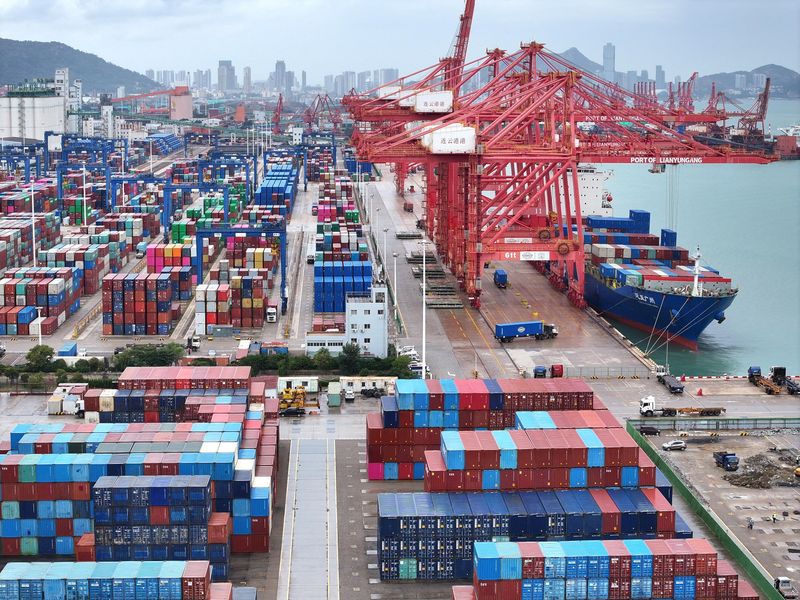Select Language

By David Kirton, Casey Hall and Ellen Zhang
GUANGZHOU, China (Reuters) - If Donald Trump wins next month's U.S. presidential election, Mike Sagan's toy-making company will halve its China supply chain within a year.
KidKraft, which also makes outdoor play equipment, had already shifted 20% of its production out of China to Vietnam, India and elsewhere after Trump introduced 7.5%-25% tariffs in July 2018, midway through his first term.
Now Trump threatens blanket 60% tariffs on China, which Sagan sees as a game-changing "blunt" tool.
He expects Kamala Harris to be less aggressive, but still likely to keep confronting China on trade.
"The writing is on the wall that it's going to be difficult," said Sagan, vice-president for supply chains and operations at KidKraft. The firm has reduced its Chinese suppliers to 41 from 53 at the start of this year.
"Question is: is it going to be extremely difficult or just difficult?"
The tariff threat alone is rattling China's industrial complex, which sells goods worth more than $400 billion annually to the U.S. and hundreds of billions more in components for products Americans buy from elsewhere.
Of the 27 Chinese exporters with at least 15% of sales to the U.S. Reuters spoke with, 12 were planning to accelerate relocation if Trump returned to the White House. Four others, still fully in China, said they would open factories overseas if Trump raised tariffs. The other 11 had no specific plans around the election result, but most expressed concern they might lose U.S. market access.

